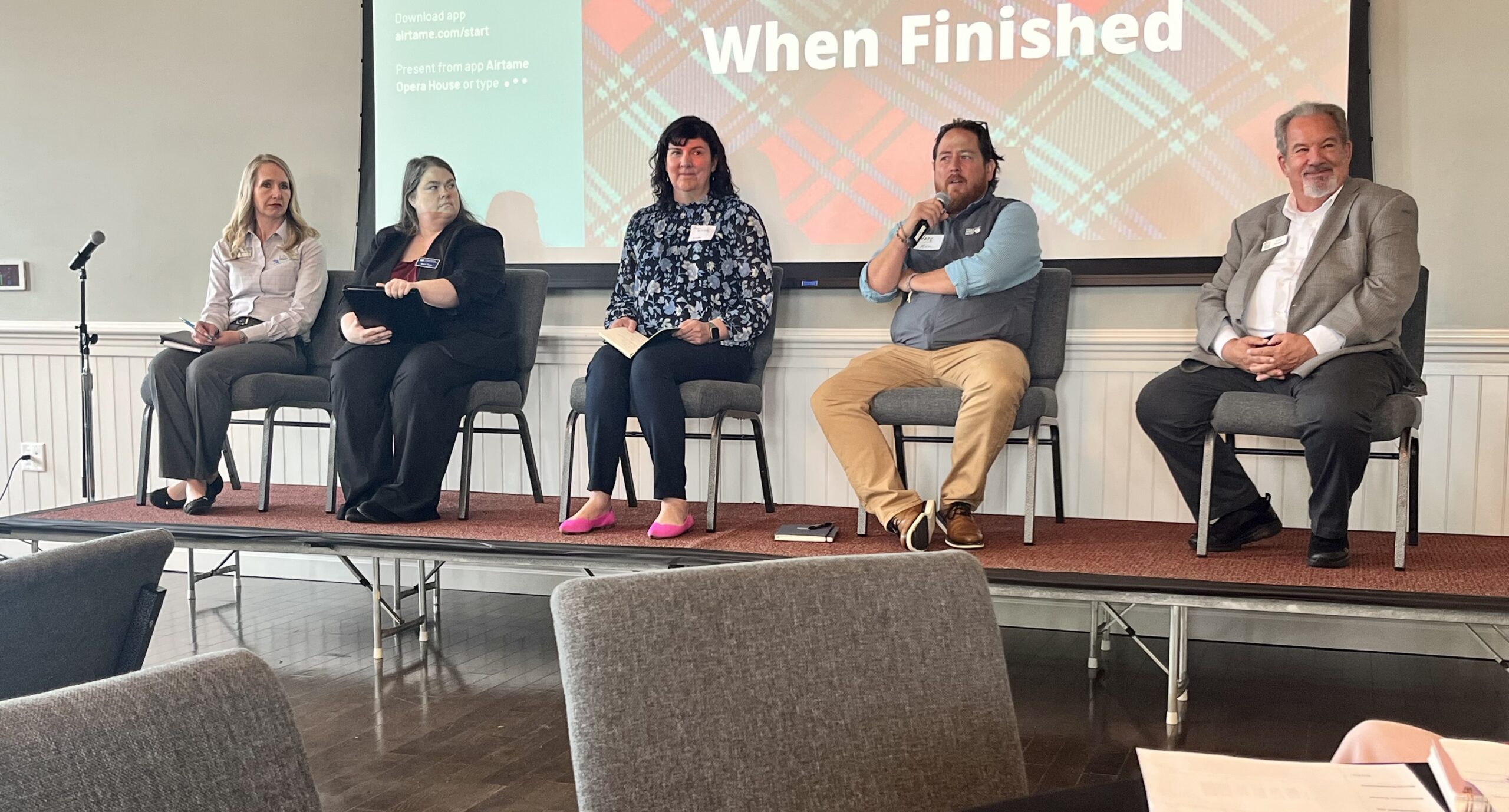
MiSBF Participates in Rural Leadership Summits
July 26, 2023
Michigan Sustainable Business Forum last week participated in a pair of Rural Leadership Summits hosted by the Michigan Office of Rural Development to foster discussion on rural priorities and gather input for a forthcoming report on rural resource needs and opportunities, the Roadmap to Rural Prosperity.
The summits in Lawrence and Alma were the first of six events that will be held over the next two weeks. MiSBF serves the rural communities of the “Central Eastern Lower Peninsula” surrounding Gratiot County through its Great Lakes Bay Region, and the “Southern Lower Peninsula” through West Michigan Sustainable Business Forum, including the West Michigan Materials Management Coalition.
The Michigan Department of Agriculture & Rural Development’s Office of Rural Development was established by the Whitmer administration in 2022 with a vision that
- Michigan must be competitive nationally for new residents and businesses
- Rural markets, natural assets, tourism, and workforce are vital to Michigan’s economic success
- Many rural challenges are similar to those in urban areas – but solutions might be implemented differently
“What we are trying to communicate is that rural communities are not all the same,” said Sarah Lucas, Director of the Office of Rural Development. “We are trying to avoid one size fits all. Look at what are the specific needs, unique characteristics.”
Approximately 98% of Michigan is considered rural, geographically, although the precise definition of a rural community remains open to interpretation, with important distinctions. (“Non-metropolitan” definitions imply an economic distress narrative, with a focus on how declining incomes and population are impacting economic and social relationships. The U.S. Census definition, however, highlights growing incomes and economies on the outskirts of metro areas.) In terms of population, rural Michigan can be generally understood as:
- Stagnating or declining population in east/central Michigan
- Growth in metro regions/metro fringe
- Housing shortages are creating local/regional challenges for attracting population to new jobs and other opportunities
- New opportunities are being created by remote work, outdoor recreation, and climate migration.
Lucas and several guest speakers discussed how rural communities can improve prosperity and sustainability. “Although things have been challenging for rural communities these past few years, we have a lot of reasons to be optimistic,” Lucas said.
The program included a spotlight of university-led efforts to educate rural communities on renewable energy development and case study on the Village of Cassopolis, a Cass County community that has become a model for sustainable rural development through strategic planning and intentional investments in place-making initiatives and community building.
Do you live or work in rural Michigan and want to help shape its future? Share your thoughts and perspectives with the Michigan Office of Rural Development by completing this short survey.
